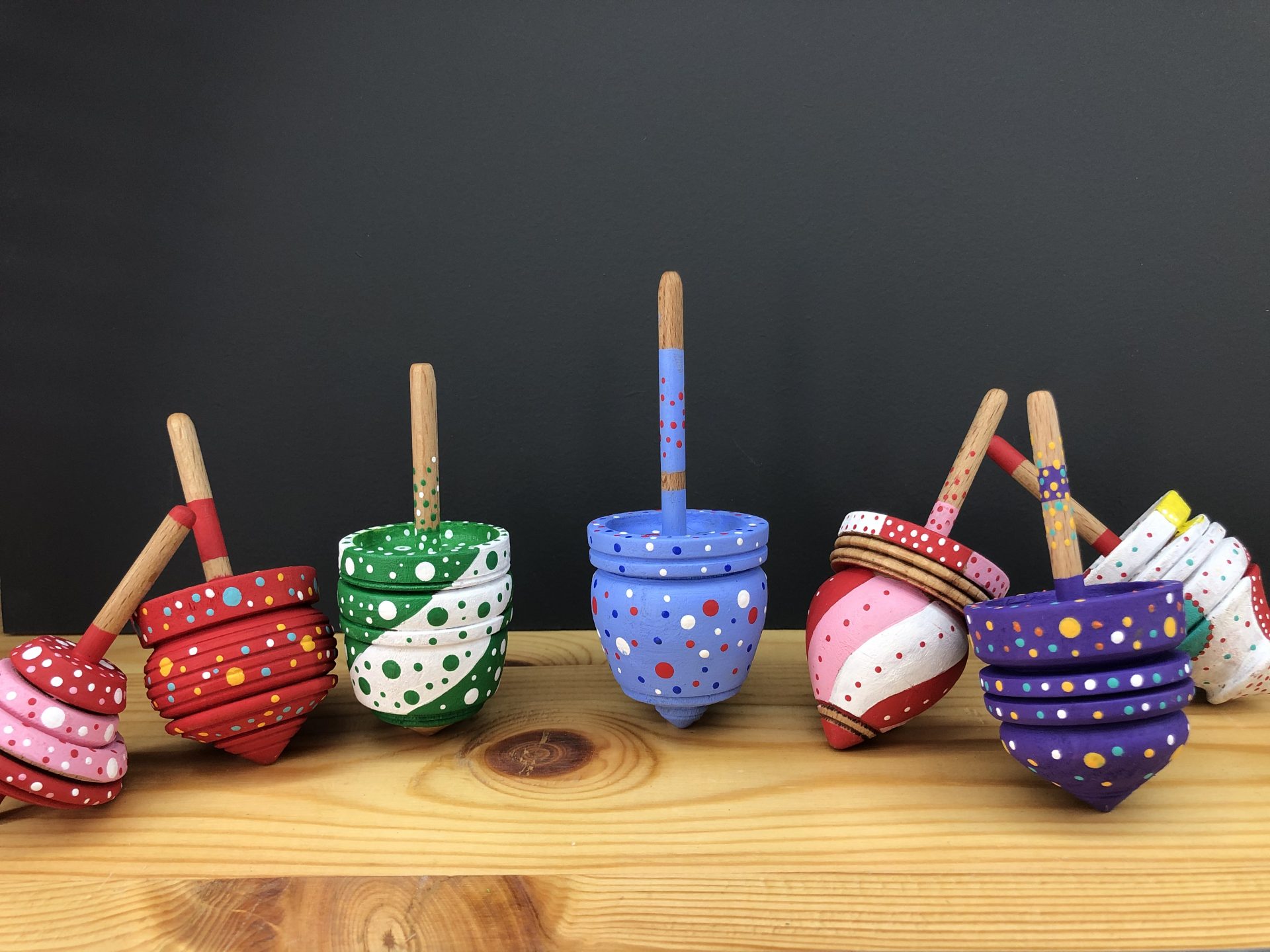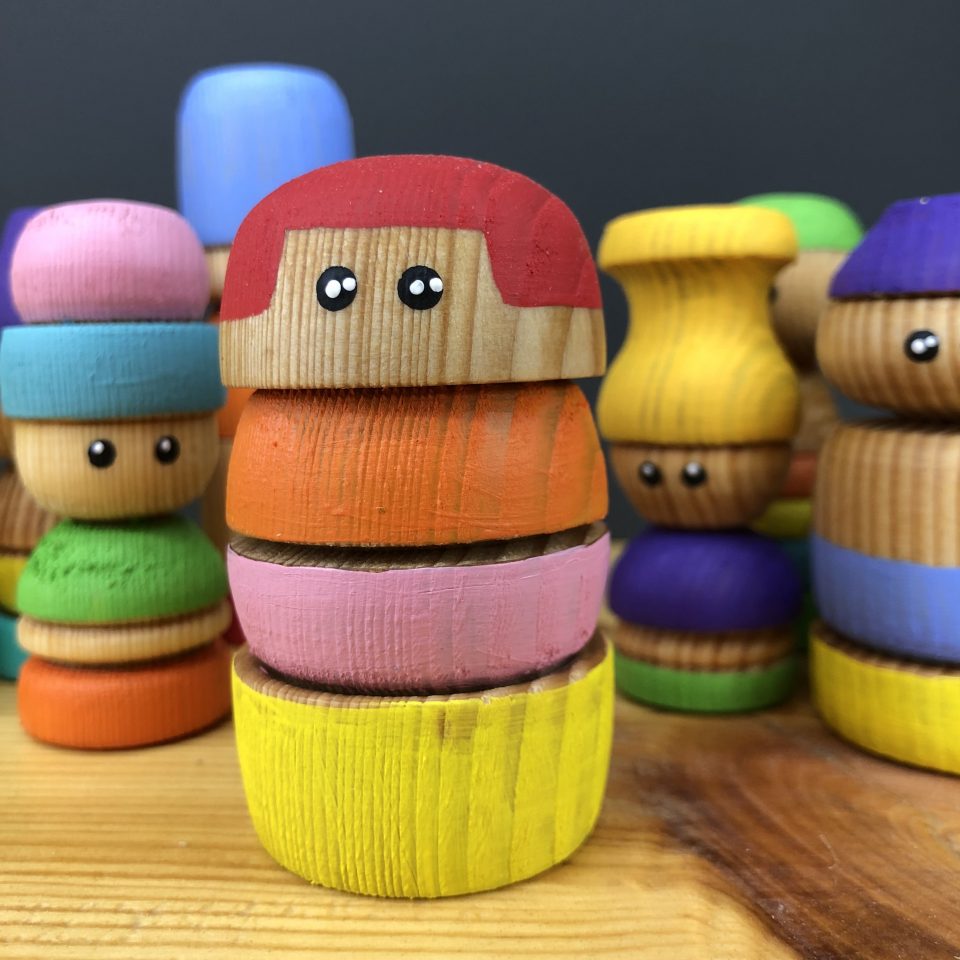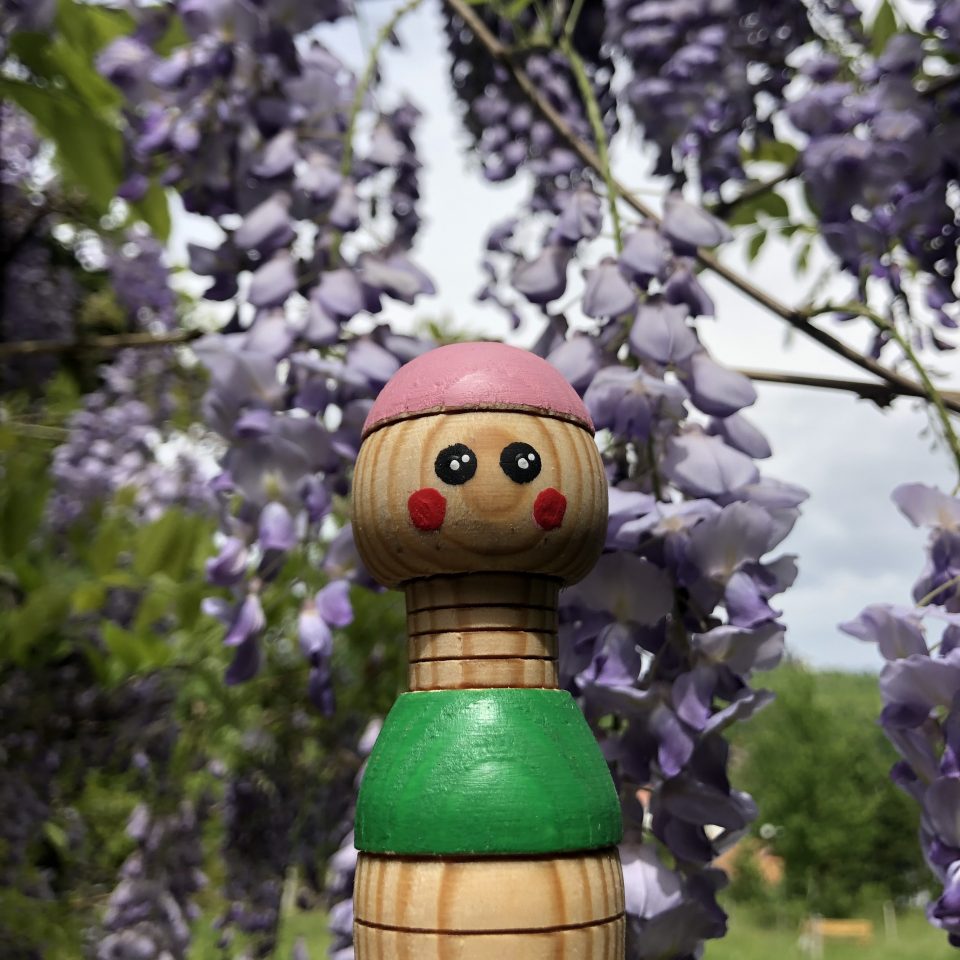
KUIKO KOIKO has shown to its owners that when one door closes, another door opens. Set up at the beginning of the COVID-19 pandemic, the characteristic name of the brand is composed of abbreviations of the words for “tiny houses” (kućice) and “cubes” (kockice), which were their first products.
After their primary jewelry-making job was suspended due to the coronavirus pandemic, Ena Mulavdić and Ebrahim Mohammadian were inspired to make their “KUIKO KOIKU” toys.
“Our inspiration came from our friends’ children and all the other children spending their time at computers and watching content that is not appropriate for their healthy development. Our toys seek to offer children a happier childhood than the one currently offered to them,” says Ena.
Ena and Ebrahim’s handmade toys are all special in their own way because of the wood used for their production and its natural variation in texture. Everything they make is the product of their hard work and commitment.
“Toys are a very sensitive design product and, as such, require an additional commitment to the research process. We also research psychology, sociology, and child development, along with types of games and how children can play. All this knowledge is integrated into toy design and contributes to positive child development,” explains Ena.

Their toys are intended for children from the ages of six months to preschool and early school age. However, as they tell us, even young teens enjoy playing with their dolls, using their imagination to write short stories about the dolls as different characters. Their product range so far comprises multicolor dice, houses, dolls, cars, and spinning tops. And spinning tops are not just a children’s toy; they act as healthy anti-stress therapy for adults at work or at home.
“We start the toy design process by considering which products we want to make. After that, we choose the best quality pieces of wood from which to make the previously-conceived product, and we mostly use pine, fir, and beech wood. We use machines such as a lathe and various drills, and the skills needed at this stage correspond to the skills that masters of carpentry have. At the very end of the process comes the polishing and coloring, with water-based paints, to fully adapt everything to children and their needs. For us, a toy is only completed when we see a wide smile on the faces of our customers,” they say.
Not only are KUIKO KOIKU toys painted with colors that are safe for children and coated with a safe final layer of edible olive oil, but KUIKO KOIKU is a one-hundred percent Bosnian brand. All the materials are sourced from within the country. To top it off, by buying a toy, you encourage the planting of trees in BiH. KUIKO KOIKU toys are unique in so many ways, adding to their value.
“The mission of our brand is to act responsibly towards the community, especially children, and to promote real values. Planting a single tree is extremely cheap; it costs around 1.50 KM, and the benefits are numerous and go beyond state borders and its policies. We include the price of planting one tree in each product as a kind of ‘planting tax.’ We plan to plant trees twice a year, organized as a class in nature with children who, we are sure, will be delighted and inspired by the activity,” explains Ena.

No two toys are the same because the KUIKO KOIKU team does not mass produce their items. When you buy one of their toys, no one in the world will have it but you.
“The approach to the design of KUIKO KOIKU toys is minimalist, which is very good for children’s development and imagination. Namely, by excessively structuring toys, that is, by fully defining the form and purpose of the toy, children are left with very little or no room for imagination and devising new ways of using the toy during their play. Our toys are, above all, intended for free, unstructured play. Unfortunately, today, children end up as slaves to various systems imposed on them through modern technologies. The goal of these toys is to return the true meaning of childhood to children through thoughtful and responsible design practice,” concludes Ena.






